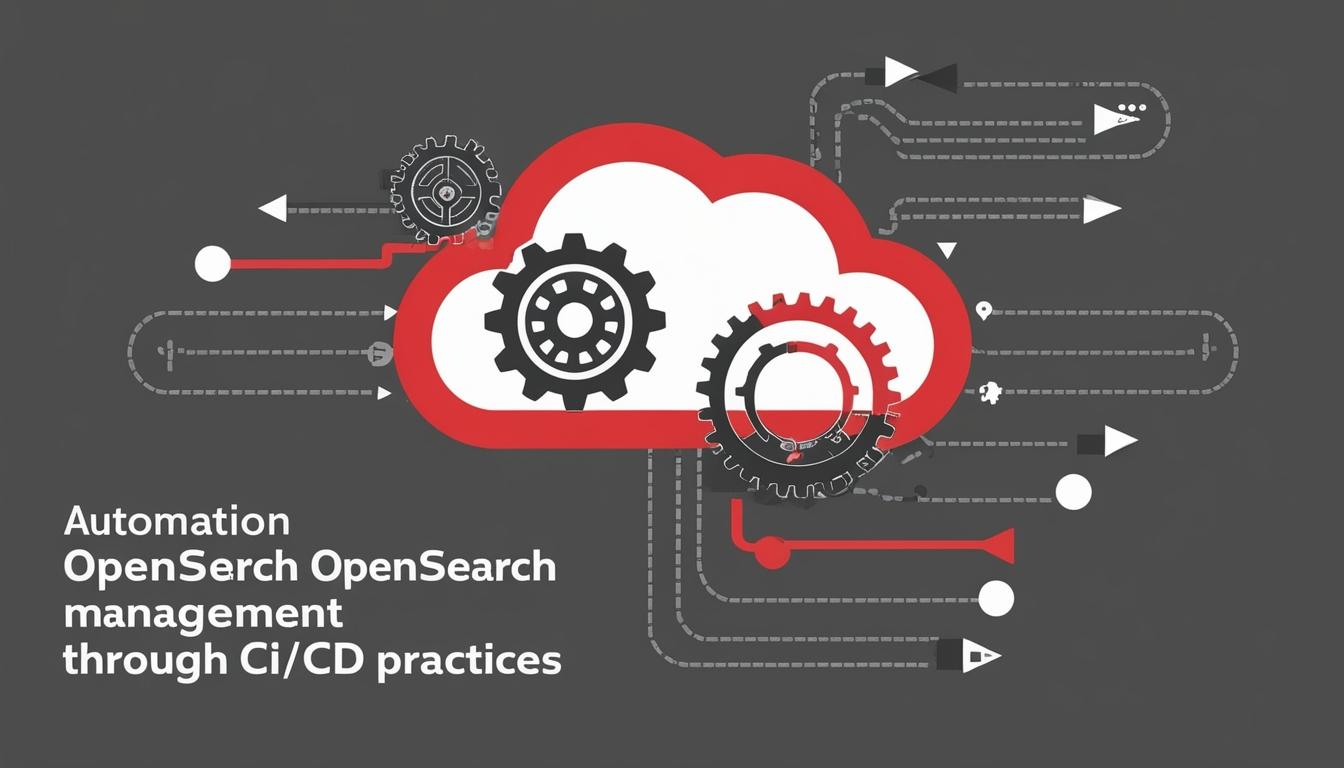Businesses are increasingly utilising Amazon's OpenSearch Service to enhance their search and analytics capabilities, as quick access to information becomes paramount for informed decision-making. The OpenSearch Service simplifies the deployment and management of search systems in the cloud, facilitating various applications such as log analysis, application monitoring, and website search.
Optimising the management of OpenSearch indices and cluster resources can yield significant benefits in performance, scalability, and reliability, which all directly influence a company's financial results. However, there is currently a lack of well-documented, built-in solutions for automating these critical operational tasks.
One approach to address this gap involves applying continuous integration and continuous deployment (CI/CD) practices to the management of OpenSearch index resources. Storing index configurations in a source repository allows for better tracking and collaboration, while the use of infrastructure as code (IaC) tools automates resource creation, resulting in consistency and a reduction in manual effort. The implementation of a CI/CD pipeline can further streamline the deployment processes.
As noted in the AWS Blog, there are two primary options for achieving CI/CD automation in OpenSearch management: the Terraform OpenSearch provider and the Evolution library. The choice between these tools will depend on existing infrastructures, preferred programming languages, and familiarity with the tools involved.
For those aiming to build automated solutions for OpenSearch Service cluster management, a straightforward implementation using the AWS Cloud Development Kit (AWS CDK) is outlined. This setup includes the use of AWS Lambda to trigger scripts from Evolution and AWS CodeBuild for applying Terraform configurations. Developers must have a firm understanding of Java and OpenSearch alongside relevant software versions installed, such as Python 3.12 and NodeJS 20.
The blog provides detailed commands to download and build the automated solution. Upon the infrastructure's deployment, developers can verify that their OpenSearch domain is operational alongside the requisite Lambda function and CodeBuild project. Furthermore, they can test the existing automated tools for creating index templates.
When applying Terraform, the developers need to define essential variables, configure the OpenSearch provider, and create index templates programmed in JSON format. An issue with the Terraform OpenSearch provider was also highlighted, recommending an alternative version until a fix is issued.
In terms of managing the Evolution library, the blog details the essential steps to incorporate the latest dependencies and create key components such as interceptors to manage AWS authentication. Evolution scripts are designed for automatic handling of index templates, settings, and mappings.
Subsequent to implementing the necessary scripts and configurations, users can execute these updates seamlessly through the Lambda console, with logging available to track the operations' success. The process concludes with instructions for cleaning up any resources created during the setup.
The extensive guide summarises how to automate OpenSearch index templates using CI/CD methodologies and tools like Terraform and the Evolution library. Both Camille Birbes and Sriharsha Subramanya Begolli, senior solutions architects at AWS, highlight their expertise in creating scalable and secure cloud solutions. Their professional backgrounds underscore AWS's commitment to providing robust support and innovative cloud technologies for businesses seeking to modernise their operations and enhance their use of data and analytics.
Source: Noah Wire Services
